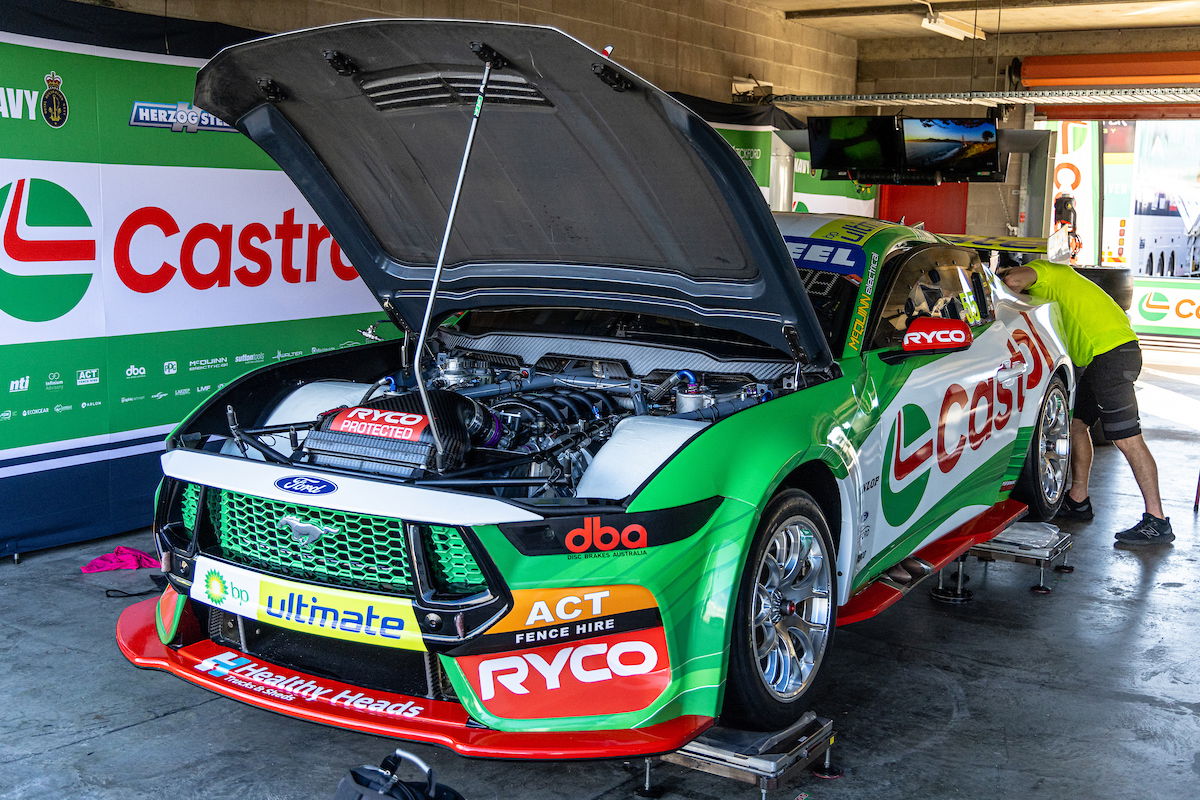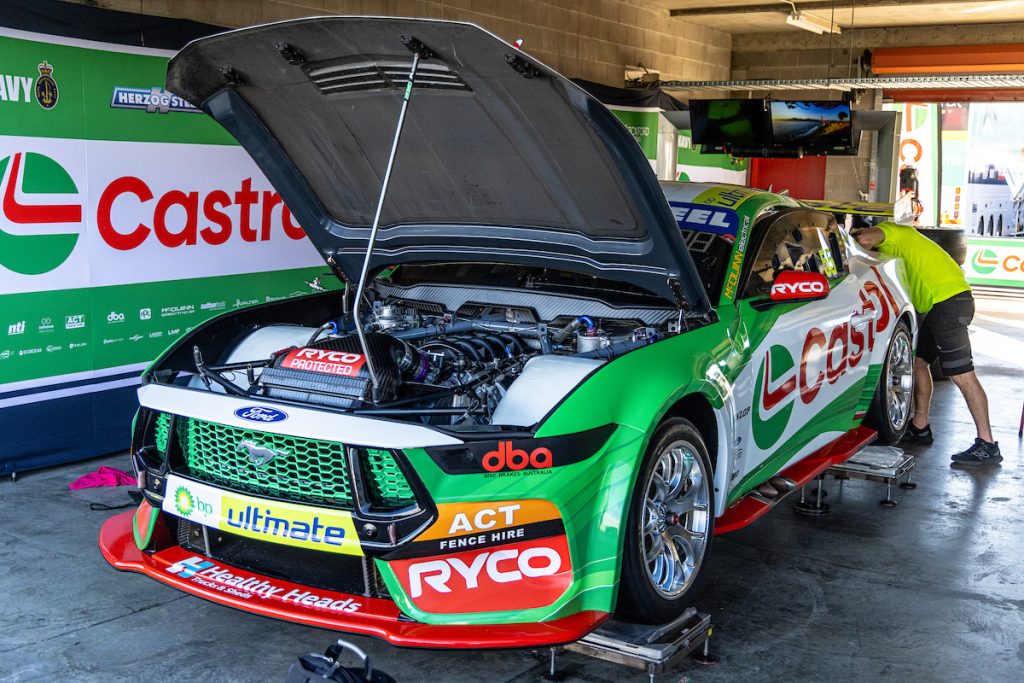

Ford’s motorsport commitments have boomed in recent years and while the Formula 1 partnership with Red Bull Racing which will come online from the 2026 season will be its highest-profile programme, V8 power – often Coyote-derived – is a cornerstone of most.
That includes not only the Mustangs which race in the Supercars Championship or NASCAR Cup Series, but also the new GT3, the GT4, and more.
Speaking at Ford Performance’s 2024 season launch, Farley declared the Blue Oval’s ongoing commitment to not only V8 race cars, but also the Mustang as a road car.
“Think about Mustang,” he said.
“There are a lot of great companies – 911 Porsche [for example] – [but] what other what other car in the world races on six continents on any given weekend?
“And that’s because we have a V8 engine.
“We can race in Aussie Supercars, we can race in Formula Drift, we can race in NHRA, we can race at Bathurst coming up, in NASCAR of course, we have grassroots, we have our own-make racing series with Mustang, and now we’re going to go to Le Mans with GT4, GT3 – IMSA, WEC…
“No other car on the planet races like that every day of the week, and that’s what Ford is all about.
“Mustang is going to celebrate its 60th anniversary coming up here.
“A lot of our competitors have left – they’ve come and gone – we never did that, we never left.
“We’ve always been there with Mustang – 60 years – and it’s changed over time.
“We have EcoBoost, we have the Dark Horse now, and we’re going to continue to invest.
“And, if we’re the only one on the planet making a V8, affordable sportscar for everyone in the world, so be it.”
The category formerly known as ‘V8 Supercars’ flirted with completely different engine architectures as part of the Gen2 era, although the closest any entity ever came to ditching V8s was when Holden/Triple Eight Race Engineering tested a twin-turbo V6 which ultimately did not race.
Gen2 did, however, bring Ford back in an official capacity when the first Mustang of the Australian Touring Car Championship’s modern era replaced the last-generation Falcon, and the Blue Oval presently supports all five teams in some way, shape, or form.
While Supercars is a heavily technically controlled category, a number of programmes can be leveraged for road car development and/or customer racing sales.
Farley, who has raced the Mustang GT4 himself on the 24 Hours of Daytona support bill, believes that Ford’s motorsport efforts can thus stand on their own two feet.
“I think, you know, we used to go racing and write a big cheque from marketing, and that’s not what it’s about,” he declared.
“We really think, for the first time at Ford, that we can make racing a business that can sustain itself, go beyond executives that go in and out of the company.
“We have the Bronco offroad rodeo, we have driver school – tens of thousands of people go through that – we have merchandise, we’re selling cars now for customers… That’s our model.
“We want to be in the race car business of selling cars, and that’s going to connect to our products.
“You know, we have a Raptor because we raced at Baja; that is exactly the model.
“We would not have a GTD if we weren’t going to Le Mans; that is the model for Ford.
“Our R&D for future vehicles will be on the race track and you’ll be able to buy them at Ford, and that is really what this circle is all about in our business of racing.”
For more of the latest NASCAR news and analysis, visit Speedcafe US



















Discussion about this post